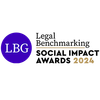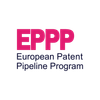
Global IP Prosecution
As your comprehensive solution for global IP prosecution, our firm unites expert attorneys and a trusted international network to deliver high-quality, cost-effective protection for your rights worldwide.
We protect: innovation
Our attorneys provide a wide range of patent prosecution services and are experienced in dealing with objections on the grounds of lack of novelty and inventive step (obviousness), as well as issues relating to a lack of clarity or sufficiency, and added subject-matter. In addition, we advise on more technology-specific issues relating to computer-implemented inventions (CII), excluded subject-matter, business methods, methods of treatment by surgery or therapy, and methods of diagnosis.
As well as being highly knowledgeable in argument and amendment strategies for responding to examination reports, we also regularly represent clients in oral proceedings before the EPO’s Examining Divisions.

Prosecution representation, globally
Here at Murgitroyd we have a wide geographical spread of experience and are able to directly represent clients before the European Patent Office, as well as at national patent offices in the UK, Ireland, Germany, France, Italy, Norway and Finland. We also have an extensive international network of vetted partner firms that enable us to manage the worldwide prosecution of your patent portfolio who have the same commitment to adding value to your business as we do.
To see how we can support you, get in touch.
Our Global IP Prosecution team
Insights
FAQs
What is copyright?
Copyright is an important component of intellectual property law that grants exclusive rights to the creators of original works of authorship. These works encompass a wide range of media, including such items as literary pieces, dramatic compositions, musical arrangements and artistic creations. This expansive scope extends to various forms of expression, such as novels, films, songs, computer software, and even architectural designs. The owner of a copyright enjoys the exclusive authority to reproduce, distribute, perform, display, and license their work, safeguarding their creative endeavours and fostering a thriving ecosystem of innovation and artistic expression.
How is copyright different from patents or trade marks?
Copyright, patents, and trade marks are all different types of intellectual property, but they protect different things. Copyright protects original works of authorship, literary, artistic, and musical creations. Patents provide legal monopoly rights for inventions or discoveries, ensuring exclusive rights for a specified period. Trade marks play a vital role in safeguarding brand names, logos, and other unique identifiers used in commercial activities, distinguishing the products or services of their owners from those of competitors.
How can I copyright my work?
In most jurisdictions, an original work is automatically protected by copyright from the moment it is created and fixed in a tangible form that is perceptible either directly or with the aid of a machine or device. However, if you wish to bring a lawsuit for infringement of a U.S. work, you will need to have registered your work with the U.S. Copyright Office. It is also possible to register copyright in other countries, such as China and India.
What is fair use?
Fair use is a legal doctrine that promotes freedom of expression by permitting the unlicensed use of copyright-protected works in certain circumstances. These circumstances may include criticism, comment, news reporting, teaching, scholarship, and research.























